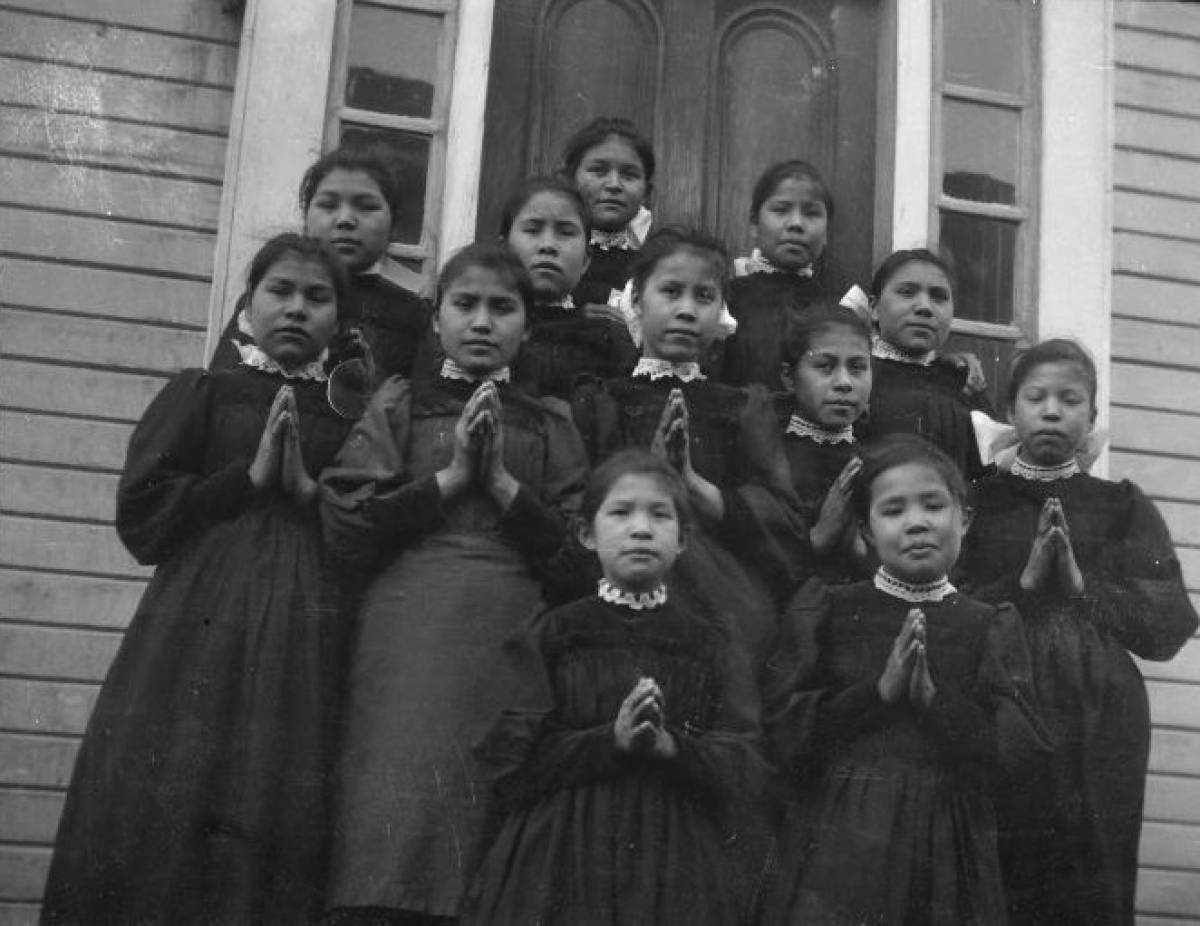OPINION
 |
| Students at the Kamloops Indian Residential School were required to embrace Catholic traditions. |
Sarah Leamon: Canada's Crimes Against Humanity and War Crimes Act is largely uncharted legal territory
The discovery of three mass burial sites at former residential schools has left the Canadian public reeling. The grim—but sadly unsurprising—news has resulted in calls for action, with a number of Indigenous groups calling for accountability in the form of criminal justice.
Cowessess Chief Cadmus Delorme has described the unmarked gravesites at the former Marieval Indian Residential School as a “crime scene”, while Federation of Sovereign Indigenous Nations Chief Bobby Cameron described the situation as a “crime against humanity”. The Native Women’s Association of Canada is demanding charges as an essential step toward reconciliation.
Their position is that the criminal charges are not only appropriate, but necessary. It is a concrete, unambiguous position. Seeing it through, though, will be anything but.
The first hurdle on the road to criminal prosecution will be building a case.

The discovery of these mass gravesites is not enough on its own. Even when combined with first-hand accounts of the abuse that happened at residential schools, more evidence will likely be required to proceed with a criminal prosecution.
Canadian police have exclusive jurisdiction to investigate crimes and to recommend criminal charges to the government as a result of their findings. In this case, the RCMP would need to begin an investigation of the burial sites. This would be an intense exercise that would likely not just involve physically pulling these sites apart, but also examining documents and interviewing witnesses in order to determine what actually happened.
The passage of time, combined with the general unreliability and/or unavailability of supporting records and documents, could make securing the evidence required tenuous at best.
If enough evidence is uncovered, the next stage would be to lay charges. However, there will likely be a number of practical complexities associated with doing so.
For example, naming parties to the proceeding could present a significant challenge.
Given the age of these gravesites, it is logical to conclude that many of the individuals responsible are deceased. Living parties to the crime may be difficult to locate. Bringing them within the jurisdiction of our courts could be a near-impossible task.
Given these realities, some have suggested that the entities responsible for the schools—not the individuals who carried out the abuse—should be charged. After all, we know that these so-called schools were run by the Catholic Church and funded by the federal government.
While an incorporated body is a legal person, capable of being criminal charged, this approach is still potentially fraught with difficulty.
Consider that criminal charges in this country are almost always laid by the Crown. Government-employed lawyers prosecute crimes as agents of the Crown.
If charges were to be laid by the Crown against the federal government, an unprecedented legal quagmire would arise. The government would be prosecuting itself.
Although private prosecutions are technically possible, which would help sidestep this impractical and improbable situation, the circumstances under which they occur is narrow and complicated. Navigating such a prosecution would be exceedingly circuitous, why may explain—at least in part—why they are so exceedingly rare.
Then arises the question with respect to the appropriate legislation. It seems that acts of this nature would be more appropriately prosecuted under the Crimes Against Humanity and War Crimes Act than the more commonly used Criminal Code.
This piece of legislation is just 20 years old—a relative baby compared to the Criminal Code—and with very few charges having ever proceeded under it, it is largely unchartered legal territory.
Moreover, proceedings under this act must only proceed with written personal consent from the attorney general. Obtaining such consent could be a laborious effort.
Finally, like in all criminal proceedings, the standard for a successful prosecution is high. In order to secure a conviction, Crown must prove their case beyond any reasonable doubt. This is the highest legal standard of proof available. It is one that presents challenges to Crown, sometimes even in seemingly straightforward cases.
Underpinning all of these complexities is the government’s extremely poor record when it comes to the treatment of Indigenous people.
Many have pointed out the RCMP’s complicity in the operation of residential schools. Bearing this context in mind, there is a looming concern that any police investigation or government action in relation to this tragedy would be disingenuous at best and dishonest at worst.
Given the seemingly enormous odds against a domestic prosecution, the International Criminal Court may be a more pragmatic forum for such a proceeding.
There is no indication that this matter has been referred to this court as of yet.























No comments:
Post a Comment
Please: Share your reaction, your thoughts, and your opinions. Be passionate, be unapologetic. Offensive remarks will not be published. We are getting more and more spam. Comments will be monitored.
Use the comment form at the bottom of this website which is private and sent direct to Trace.